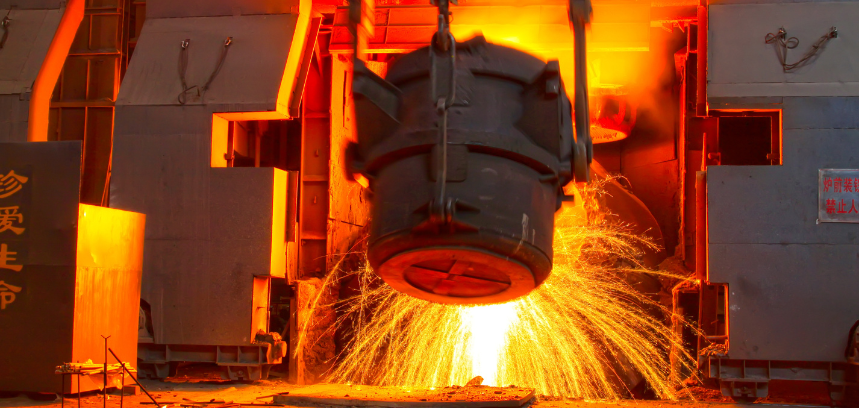By Dustin Scarpa, Co-Founder and Managing Partner, Transparent Energy
As someone who has founded his own energy-procurement company, immersed himself in the complexities of energy markets, and worked closely with some of the largest REITs and building-portfolio owners in the world, I am very familiar with the green transformation beginning to occur in commercial real estate. I just want you to know that it doesn’t have to come at the expense of your net operating income (NOI).
Unfortunately, there is a commonly held misconception that greening your asset portfolio requires a significant capital outlay. It really doesn’t have to be that way.
At Transparent Energy, we have shown again and again that online reverse auctions, a hyper- competitive process run by a team of energy-market experts and unrivalled transactional professionals, deliver REITS, building owners, and other large buyers of energy the most cost- effective results possible for electricity and natural gas agreements. What is less known is that using the same process can secure green power – in the form of renewable energy certificates (RECs) or directly from a renewable-generation asset – which will accelerate your transformation to net zero at a fraction of the cost you likely imagined.
Additionally, and this is the key, with the money captured and retained using an advanced online auction to procure your utility and green power, typically 7-8% below the results a traditional, paper-based, procurement advisor would deliver, these newly unlocked funds can in turn be used to fund other strategic clean-energy initiatives for your building, such as purchasing EV charging stations, battery storage, or on-site solar!
Creating the Delta
Over the course of my discussions with various REITs and large corporate buyers, one key theme continues to emerge: the numerous products and solutions available for enabling the ESG transition to more sustainable assets. The biggest problem, of course, is where to find the money to execute on these ambitious transition initiatives and how quickly this capital can be accessed.
One narrative often heard by building portfolio holders is that to become carbon neutral they must invest in large-scale power purchase agreements (PPAs) or virtual power purchase agreements (VPPAs). At Transparent Energy, we absolutely believe in these powerful green instruments, but we also know they require massive amounts of time and capital to complete and are not always for everyone.
You have goals to hit now, and there is no reason you can’t make significant progress towards your sustainability goals today. Online auctions can play a key role in your clean-energy transition. (See Google whitepaper on this very topic here.)
A few things to consider:
- Off-site power procurement plays a sizable role in your ESG transition. Just as natural gas has been positioned as the “bridge fuel” to getting our country to the desired goal of 100% renewable power (i.e., it’s going to take a long time to reach 100% renewables, so let’s use the cleanest-cost effective option in the meantime), you are going to need to operate your buildings with offset power until your net-zero plan, incorporating additionality, is fully developed, likely a few years from now.
- Given that you will need to continue procuring power, and possibly carbon offsets, you should absolutely procure it in the most competitive way possible, e., in a way that might even reduce your operating cost, creating a delta that allows you to then purchase RECs and/or invest in additional on-site energy efficiency measures and effective green capital equipment, including EV chargers and resilient batteries.
- Buying RECs is easy and economical when done as part of an inclusive power procurement auction. When you work with an energy-procurement expert experienced in procuring green energy alongside traditional power, you can kill two birds with one stone, while spreading the CapEx over the year(s) of the supply contract. Put another way, this approach enables you to meet your near-term energy needs, longer term net-zero carbon emission goals, and preserve capital – all at the same time!
How Online Auctions Work
My team and I have written many articles on how proprietary reverse online auctions for energy procurement work (here’s a good one to get you started). But for the purposes of this article, let me outline a few basic points.
An online auction event is actually comprised of several auctions. This allows us to help you see how the market, i.e., the several suppliers bidding for your energy load on our platform, is pricing various products. For example, these products might be a 12-, 24-, 36-, and 48-month fixed-price contract. But because our auction platform is scalable and operates in real time, we can easily add 25%, 50%, 75%, and 100% green power products for consideration, in the form of RECs, to the 12-48 month traditional products just mentioned.
As the auction unfolds, you as the buyer would see all the bids the suppliers make on each product. You might find that the winning price for a 36-month contract and the winning price for the corresponding RECs purchase (i.e., for 36 months), comes from the same provider. The granularity of this process also enables you as the buyer to identify the cost premium of not only the ESCO’s (Energy Supply Company) renewable energy options, but also those of the “non-ESCO” resellers of unbundled RECs.
You could enter a 100% green energy contract through the same provider – OR – if the winner of the power auction is far below the winner of the REC auction, you could contract separately for the same 100% clean energy attributes at a negligible, or non-existent premium when compared to the price submissions of other energy providers.
That’s powerful, because RECs count – both in the media and in the boardroom, where these purchases can simplify and accelerate the conversation toward your more ambitious transition goals. And especially so if the net impact of a hyper-competitive approach creates a budget delta, making it easier to broach the idea of higher-ticket CapEx items such as EV chargers or onsite resiliency equipment.
The beauty of the approach is that utilizing an online auction doesn’t force your hand in either direction. It will simply deliver the bid discovery and savings which enable you to make the sustainability decisions most important to you.
Online Auctions are Greening Buildings across America
None of this is a theoretical exercise. Your peers are already using online reverse auctions to advance their sustainability goals. For example:
Transparent Energy ran an online reverse auction for one of its CRE clients to source power for 6 million square-feet of class A commercial real estate. The successful event led to the purchase of over 55 million kWh of renewable power. Eight suppliers placed over 200 bids on the different power products and terms requested. The hyper-competitive process drove the total cost of electricity for the portfolio down by 9% and covered 100% of their power need. This process not only secured 100% renewable power but also opened up a $160,000 budget gap for 2023, which the client will re-allocate toward the installation of 20 EV chargers across its various properties for a zero-cost impact on the 2023 budget. This auction effectively covered the premium for the renewable energy purchased AND the installation costs for their fleet of EV chargers – greening the entire portfolio while preserving, and even increasing, NOI.
In the Dallas-Fort Worth metro area, Transparent Energy helped one property owner with a 260,000 square-foot office building test the market for traditional energy products and ones sourced from wind and solar across 24-98 month terms. With the results of the auctions in hand, Transparent Energy helped the buyer execute the deal best for its business: a 98-month fixed-price, 100% wind-supplied contract that cost only $4,000 more per year than the corresponding brown power-only product. A master stroke of sustainability at a negligible cost.
Simply put, that could be you.




